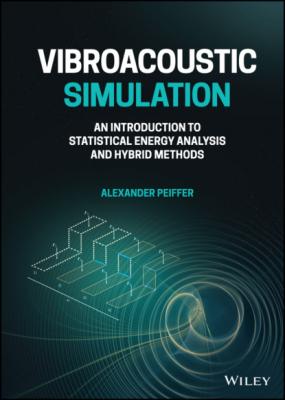Vibroacoustic Simulation. Alexander Peiffer
Читать онлайн.| Название | Vibroacoustic Simulation |
|---|---|
| Автор произведения | Alexander Peiffer |
| Жанр | Отраслевые издания |
| Серия | |
| Издательство | Отраслевые издания |
| Год выпуска | 0 |
| isbn | 9781119849865 |
Since ωn2≠ωm2 this requires
Using this in Equation (1.109) gives also
Thus, the mode shapes are orthogonal to each other with respect to [K] and [M]. For normalisation we multiply (1.106) from the left with {Ψ}m
and get
for the modal mass mn and stiffness kn with the following relation to the modal frequency
1.4.4.1 Equation of Motion in Modal Coordinates
The orthogonality of the mode shapes allows using them as a base for new coordinates that will simplify or condense the equation of motion. It is convenient to chose a normalisation with modal mass unity, thus mn=1, hence:
{Φ}n is called the mass-normalized mode shape of the system. With Equation (1.116) and writing the mass normalized modes in matrix form
it becomes clear that the normalisation from (1.114) and (1.115) now reads as follows:
The prime (′) denotes modal coordinates or matrices and [I] is the unit matrix. Due to the orthogonality of the modes every solution q can be expressed as
and
The vector {q′} with components qn′ is the displacement in modal coordinates. coordinates ! modal Entering this into (1.103) and multiplication from the left with [Φ]T provides
